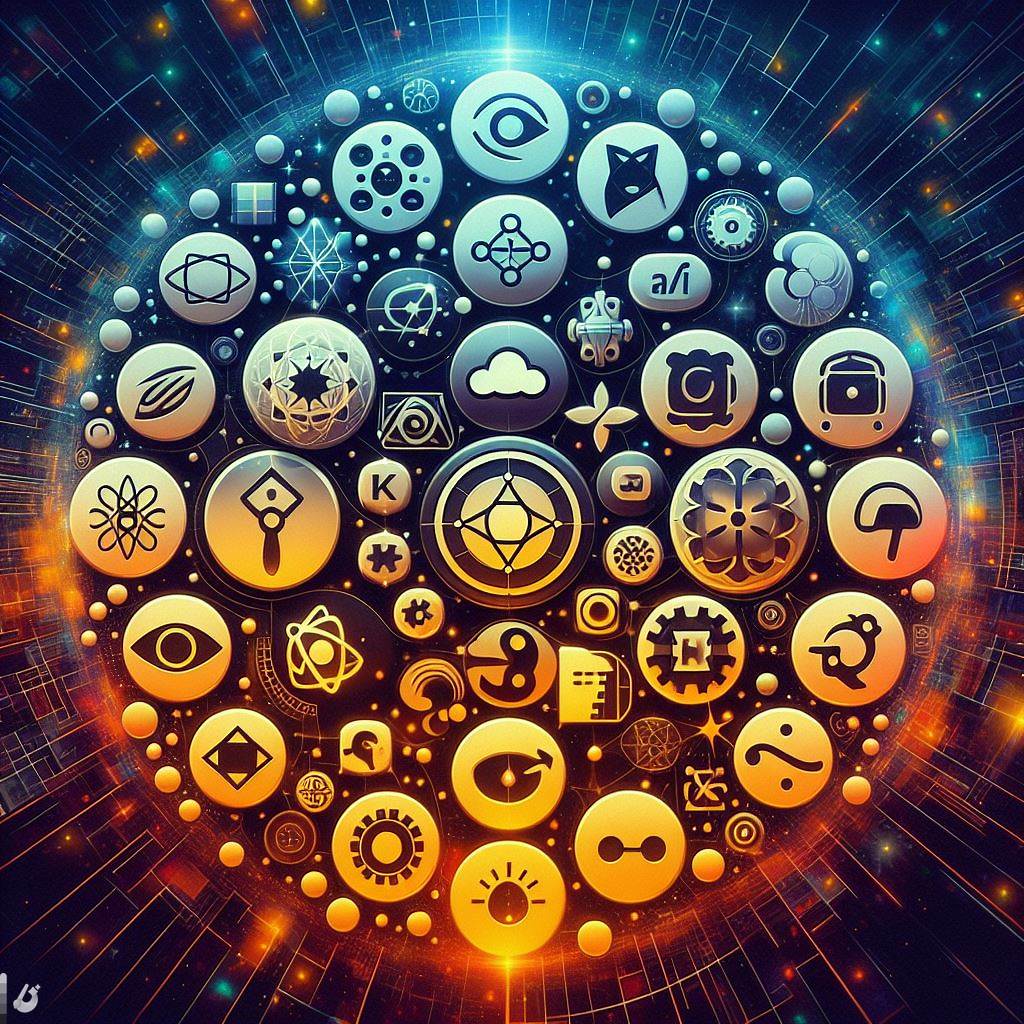
The year 2023 has marked a pivotal moment in the evolution of Artificial Intelligence (AI), showcasing unprecedented advancements that are reshaping our interaction with technology. From creative wings to code generation, AI chatbots, and more, this article delves into the key developments that defined this groundbreaking year.
ChatGPT: Redefining Conversations with AI
In November 2022, OpenAI introduced ChatGPT, a chatbot that astonished the world with its ability to answer diverse questions, ideate, and even write programs. Utilizing OpenAI's proprietary GPT-series language model, ChatGPT quickly evolved, adding features, mobile versions, and the powerful GPT-4 model. The introduction of CustomGPTs and integration with DALL-E 3 expanded its versatility. However, the year ended on a discordant note with a boardroom coup shaking OpenAI.
Bing AI Chat/Microsoft Copilot: A New Dimension in Search
Microsoft's Bing AI Chat, now known as Microsoft Copilot, emerged as a noteworthy competitor. Powered by GPT-4, it engaged users with human-like conversations, excelling in content creation, coding assistance, travel planning, and language learning.
Runway Gen-2: Groundbreaking AI in Video Creation
Runway's Gen-2, endorsed by Google, made waves in the entertainment industry. Its role in creating visual effects for the Hollywood film 'Everything Everywhere All at Once' showcased its ability to generate videos from various inputs. While impressive, areas for improvement include precision in video generation.
DALL-E 3: Crafting Images with Words
OpenAI's DALL-E 3, the third iteration of its image-generating AI model, integrates seamlessly with ChatGPT. Users can create mind-blowing images by describing their vision to ChatGPT. OpenAI took measures to limit inappropriate content generation and made it accessible to ChatGPT Plus subscribers.
Midjourney: Painting Images with Words
Midjourney, a popular AI tool, generates captivating images based on detailed text prompts. Its ability to create precise and photorealistic images, as seen with images of Pope Francis in a Balenciaga puffer jacket, went viral, demonstrating its prowess.
Pi Chatbot: A Supportive AI Companion
Launched by Inflection AI in August, Pi Chatbot, a creation of DeepMind and LinkedIn co-founders, aims to be a supportive and empathetic companion, standing apart from traditional chatbots like ChatGPT and Google Bard.
Claude 2: Constitutional AI in Conversations
Anthropic's Claude 2, a commercial version of its earlier Claude chatbot, boasts a large context window and self-supervision learning. Designed to be helpful and honest, it engages in natural conversations and assists with various tasks.
Character AI: Conversations with Celebrities and More
Character AI allows users to engage in natural conversations with AI versions of celebrities, historical figures, and fictional characters. With engaging responses, it surpassed visitor engagement times compared to ChatGPT.
GitHub Copilot: AI-Powered Coding Assistant
GitHub Copilot, an AI pair programmer developed by GitHub (Microsoft), enhances creativity in coding by providing contextual suggestions and real-time assistance.
Adobe Firefly: AI Image Generator for Creativity
Adobe's Firefly, currently in beta, serves as a creative powerhouse, transforming prompts into stunning images. Ideal for content creators, it is free to use and promises a seamless visual content creation experience.
Perplexity AI: Bridging Creativity and Knowledge
Perplexity AI, a conversational AI search engine, combines natural language processing and machine learning to offer precise answers with sources, making it a valuable tool for research and knowledge enhancement.
Looking Ahead to 2024: AI's Future Landscape
As we approach 2024, the transformative year of 2023 sets the stage for continued innovation in AI. Anticipated trends include advancements in natural language processing, enhanced AI ethics protocols, and more intuitive user interfaces. Challenges related to data privacy, algorithmic bias, and AI's impact on jobs are likely to persist, emphasizing the need for ethical use and equitable access. The integration of AI in sustainable development, healthcare, and education is also expected, warranting vigilant monitoring to ensure responsible AI utilization.